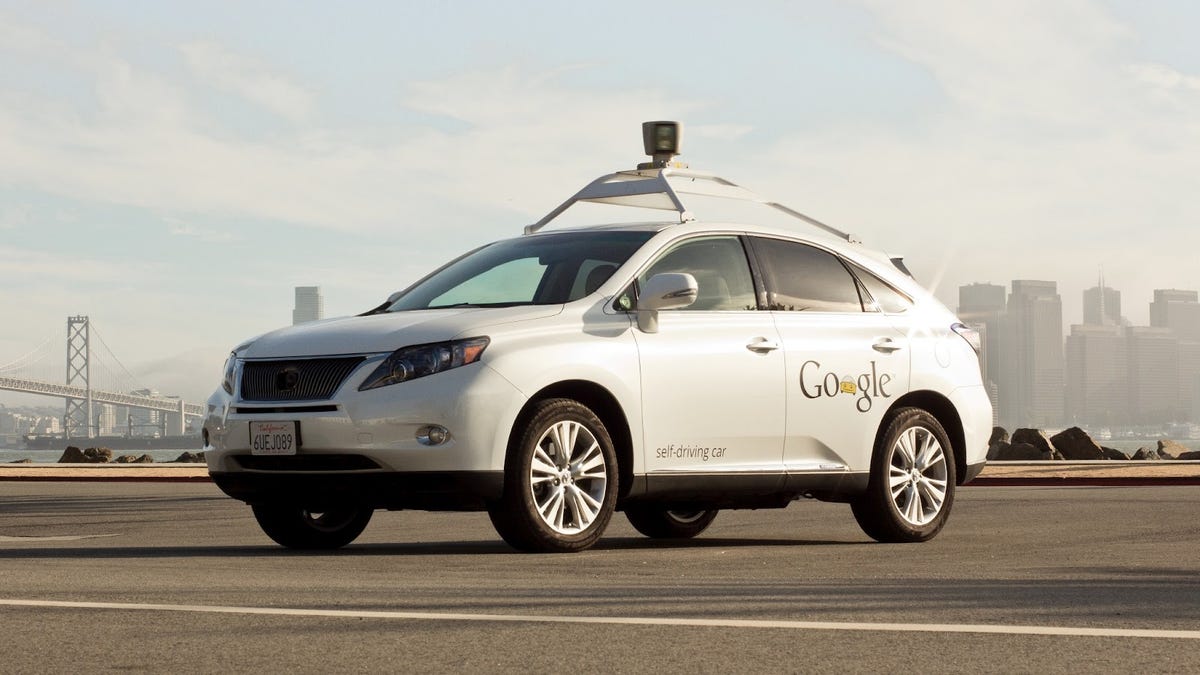Self-driving cars face massive roadblocks in New York City
A decades-old law along with concerns about "ghost vehicles" and drivers losing their jobs are just a few of the issues keeping autonomous cars out of the Big Apple.

Self-driving cars are gridlocked en route to New York due to red tape and antiquated legislation preventing tech companies from testing them out on the city's streets.
During a New York City Council hearing Friday, experts attributed the holdup in part to a 1971 law that requires drivers to keep one hand on the steering wheel at all times when the vehicle's in motion. When that legislation was passed, self-driving cars weren't even a thought, said David Strickland, spokesman for the Self-Driving Coalition for Safer Streets.
The law has forced New York, with more than 2 million registered vehicles and 8 million people, to take a backseat to cities like Pittsburgh, Austin and Denver, which have sped ahead with driverless cars. Councilman Dan Garodnick questioned whether there's a way the city could get an exception to the law due to special circumstances.
"NYC will miss chance to lead on autonomous cars if our laws do not even allow us to test them on city streets in a safe and controlled way," Garodnick tweeted from the hearing.
During the hearing, Uber pointed to Pittsburgh as a city model that New York should follow. Pittsburgh worked with Uber on a trial run of autonomous Ford Fusions.
One of the first steps in bringing driverless cars to the Big Apple is letting the vehicles collect New York-specific data. For example, what happens when a self-driving car passes by horses. Ydanis Rodriguez, the city's transportation committee chair, raised the issue in reference to New York's horse-drawn carriages near Central Park and the New York Police Department's mounted officers.
"The infrastructure needs of a Pittsburgh are going to be different from the infrastructure needs of a New York," said Andre Greenwald, from Via, a ride-share startup.
New York's is the "most complex street system in North America," said Michael Replogle, deputy commissioner of the city's Department of Transportation. He warned that if the city doesn't properly regulate autonomous vehicles, it would just create even more congestion and gridlock traffic.
Replogle also raised concerns about the potential for "ghost vehicles," in which owners would just continue to let their autonomous vehicles wander around the city to avoid parking. Along with creating even more traffic, ghost vehicles raise a revenue concern. The city rakes in hundreds of millions of dollars in parking tickets annually, pulling in $565 million in 2015.
The city's taxi drivers are also concerned about what autonomous vehicles would mean for their jobs. Councilman Antonio Reynoso warned that the battle to get self-driving cars in NYC wouldn't be about the most innovative technology or over legislation.
"This is gonna be a fight regarding jobs," Reynoso said.
New York's struggle is not an isolated case. Rather, it's indicative of a country that's well behind its own tech industry. Up until this year, the US lacked a cohesive framework for autonomous vehicles on a nationwide scale. Federalism plays a part in that, as the US' multi-state makeup leaves it difficult to apply rules to all 50 states when the states themselves have most of the say in regulatory matters.
However, there are still some issues with more cutting-edge autonomous vehicles. Google reached out to the feds regarding its gumdrop-shaped prototype, which does not use a steering wheel and could therefore be found in violation of federal safety standards. The feds declared the car was its own driver, effectively granting Google an exception on a semantic technicality, but going forward, there will likely be many more exceptions to take into consideration.
Thankfully, the US did finally build a series of regulations that it will pass on to the states, in the hopes of spurring autonomous vehicle development without putting citizens at risk. That said, there's always going to be a concern when testing fledgling technologies on public roads. Michigan, prior to allowing autonomous cars on public roads, had a sort-of workaround with MCity, a dedicated facility that mimics a small town where automakers and researchers can test self-driving cars with far less risk.
CNET's Andrew Krok contributed to this report.

